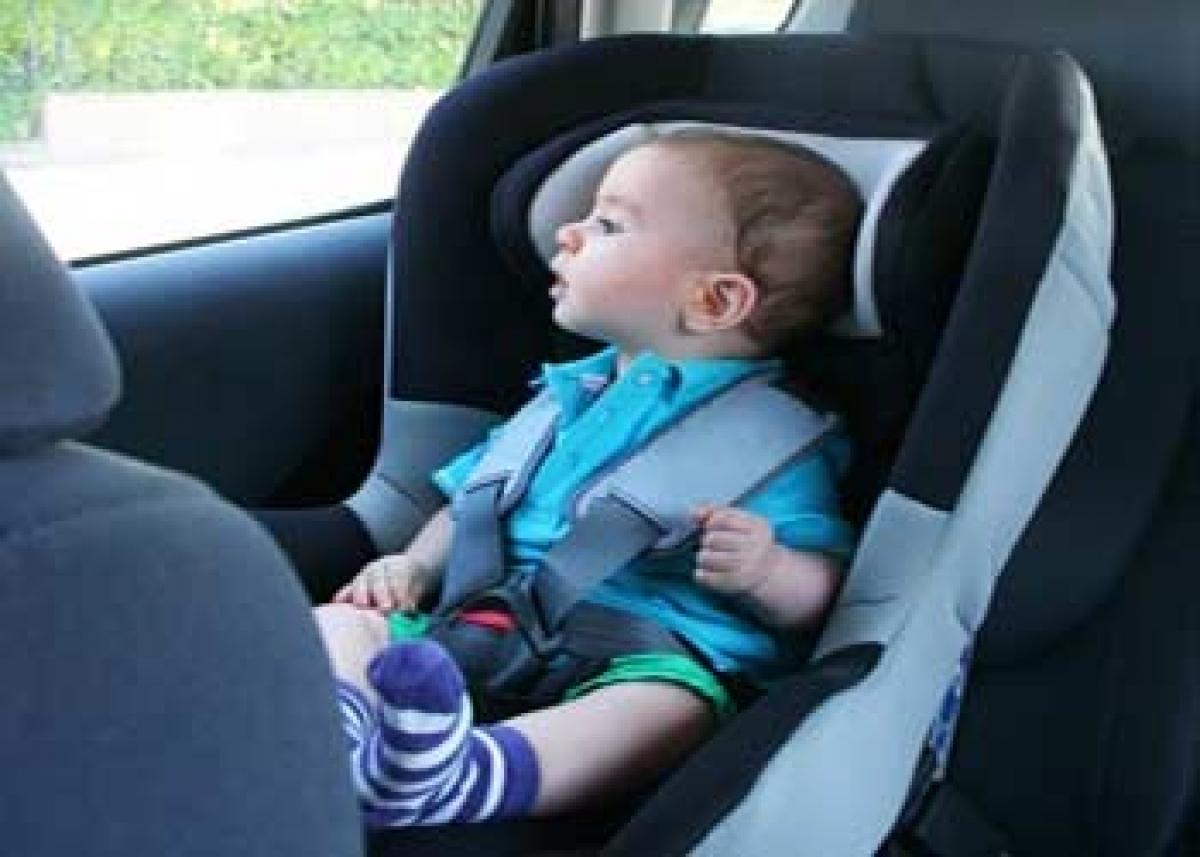Live
- Congress harbours no grudge against any actor: TPCC chief
- Allu Arjun meets Upendra after release from prison, wishes for his ‘UI’ film
- Government Launches Uniform Diet Plan to Boost Student Health and Education
- Robust Security Arrangements for TSPSC Group-2 Exams in Jogulamba Gadwal
- National Lok Adalat Resolves 3387 Cases at Alampur Court
- ‘Get Set, Grow Summit 2024’ Focuses on Digital Detox for Families
- Stokes motivates his team to put in extra effort, says England pacer Potts
- From overcoming setbacks to leading India in U19 Women’s Asia Cup, Niki Prasad's amazing journey
- Driving Enterprise Security: Inside Venkata Reddy Thummala’s Leadership Journey
- Constitution debate: PM Modi hails 'Nari Shakti'; makes strong pitch for 'United Bharat’
Just In

Ban on leaving young children in cars needed. In the wake of suffocation to death of two minor sisters in a locked car in Gurgaon, child health experts on Thursday said stricter laws to prohibit parents from leaving their young children unattended in cars was the need of the hour.
 New Delhi: In the wake of suffocation to death of two minor sisters in a locked car in Gurgaon, child health experts on Thursday said stricter laws to prohibit parents from leaving their young children unattended in cars was the need of the hour.
New Delhi: In the wake of suffocation to death of two minor sisters in a locked car in Gurgaon, child health experts on Thursday said stricter laws to prohibit parents from leaving their young children unattended in cars was the need of the hour.
Himanshi, 4, and her sister Pinki, 2, accidentally locked themselves in their family car while playing hide-and-seek in Gurgaon, Haryana, on Wednesday and were declared dead at the hospital. Cars, as comfortable as they may be for travel, make it hazardous for kids trapped or left inside, experts said.
Dr. Dhiren Gupta, a child health specialist at Sir Ganga Ram Hospital here, said children left unattended in cars could be suffocated to death within a few hours. "There are laws in other countries that make it illegal for parents to leave unattended their children below certain age in motor vehicles.
We need such norms in our country to prevent deaths of children by suffocation in cars," Gupta told IANS. He said that central locking systems in modern passenger vehicles make it impossible for children to get out on their own.
Consequently, children could be suffocated and rendered unconscious once oxygen in the car is consumed. Considering an average-sized car, which could contain about 60 liters of oxygen, Gupta estimated that children could consume the entire oxygen in a car within six hours.
The time could be even lesser if the children's body temperature went up if the vehicle was parked in a hot garage or under the sun. "Even if parents decide to leave air-conditioning of the car running, with the ignition turned on, there is high chance of carbon monoxide poisoning the children," Gupta said, adding that this could lead to brain damage.
In a closed environment like a garage, carbon monoxide from exhaust fumes can seep into cars. According to Dr V K Paul, a child health expert and head of paediatrics department at All India Institute of Medical Sciences, dehydration was one of the reasons children could fall unconscious when left in cars.
"Children could get dehydrated very quick if left alone in cars. It could lead to death within a few hours, although one cannot exactly predict for how long they can be safe in the car," Paul said. In March, four children in Ghaziabad, Uttar Pradesh, were burnt to death after a faulty music system in the car sparked and ignited firecrackers stored in the vehicle.
In April 2014, four children aged 4, 7, 8 and 10 playing in an abandoned car in a vacant plot in Tamil Nadu's Tuticorin locked themselves in by accident. A few hours later, the kids were found dead.
The US is one of the few countries in the world that has laws prohibiting children to be left unattended in motor vehicles. According to KidsAndCars.org, a public safety awareness body in the US, 19 states in the US have laws prohibiting children to be left unattended in motor vehicles.
These laws state that any kid, younger than six years, cannot be left unattended in a vehicle where the keys are in ignition. Despite this, according to the department of meteorology and climate science of San Jose State University, US, there have been at least 657 deaths of children left in cars from 1998 till 2014 - an average of 37 deaths a year.
Out of these deaths, 53 percent occurred as children were "forgotten" inside the vehicles by caregivers, 29 percent while kids were playing inside vehicles and 17 percent when children were intentionally left behind in vehicles. There is no comparable data for such deaths in India.
By Bhavana Akella

© 2024 Hyderabad Media House Limited/The Hans India. All rights reserved. Powered by hocalwire.com







